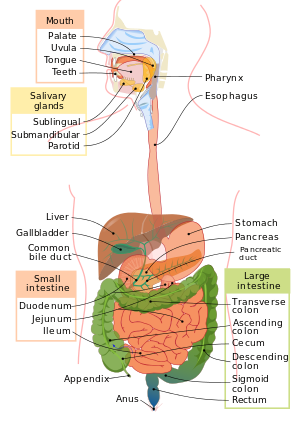
Inflammatory bowel disease (IBD) is a group of bowel diseases that cause long-lasting inflammation in the digestive tract. IBD is a term for two diseases, Crohn’s disease and ulcerative colitis that are both characterized by chronic inflammation of the gastrointestinal tract (GI) and persistent inflammation leading to GI tract damage1. Both types of IBD can be characterized by inflammation along the mucosa of the digestive tract that affects the deeper layers of the tract.
Colitis is a chronic digestive disease characterized by inflammation of the intestinal membrane. In Crohn’s disease and ulcerative colitis they affect all parts of the gastrointestinal tract.1 The mouth and anus are most frequently affected, but parts of the small intestine and large intestine can also be affected. Infections and loss of blood supply to the colon in IBD and invasion of the intestinal walls with collagen and lymphocytic white blood cells are possible causes of an inflamed colon.
Crohn’s disease affects all parts of the gastrointestinal tract, from the mouth to the anus. It affects the last part of the small intestine and large intestine. It can affect parts of both GI tracts and affect the terminal ileum that connects the end of the small intestine to the beginning of the large intestine.
The ileum is the underside of the small intestine, which becomes ulcerated and inflamed. Your immune system confuses food or other material with an invader, and a wound or ulcer develops in the colon, also known as the colon lining.
IBS does not inflame or damage the intestinal tract and IBD imaging scans do not detect IBS, so it does not increase the risk of colorectal cancer. IBS can also occur during an infection as a result of SIBO, there is no evidence that IBS increases the risk of IBD.
Celiac disease is an autoimmune disease which causes the body to attack the intestinal mucosa when a person eats gluten-containing foods. Gluten intolerance or celiac disease is a serious disease that, if left untreated, can cause damage to the intestine.
Inflammation in the rectum and large intestine can spread over time to other parts of the intestine. It affects maturity, causing food to pass at a faster rate through the large intestines and leaving less time for water absorption, resulting in watery stools. Crohn’s disease also affects the small intestine, preventing proper absorption of food, leading to diarrhea and increased excretion of fat, steatorrhea and other nutrients.
Contrary to popular belief, Irritable Bowel Syndrome (IBS) is not the same as inflammation-causing bowel disease (IBD). IBS does not cause inflammation and the tissues of the intestine are not as damaged as in IBD.
Chronic diarrhea is due to a large number of intestinal infections such as C. difficile, Cryptosporidium, gerardia and others. It is the end result of a series of bacterial disorders or food allergies that need to be identified to receive appropriate treatment. These include celiac disease, food intolerance, lactose intolerance, allergies, Crohn’s disease, ulcerative colitis and IBS.
The treatment of inflammation bowel disease is multi-faceted but also includes the treatment of symptoms and consequences of the disease and the adherence to medication therapy that combats and reduces underlying inflammation. The main overarching challenge is to control food intake in diseases that affect the digestive system.
IBD can be debilitating and lead to life-threatening complications. Up to 7 in 10 people with Crohn’s disease will need surgery if medication no longer provides symptom relief.
Medications that suppress inflammation and eliminate foods that cause discomfort can help. If you have frequent, urgent bowel movements, pain, diarrhea, blood in the stool or abdominal cramps, go to your doctor immediately.
These include ibuprofen (Advil, Motrin IB and others), naproxen sodium (Aleve) and diclofenac sodium (among others). These drugs can increase the risk of developing IBD or worsening it in people with IBD. Fortunately, there are safe alternatives to Over the counter anti-inflammatory drugs. Curcumin is one example, this root extract can help reduce inflammation in the intestinal tract and through out the body with no side effects. After talking to a doctor, looking at the direction he/she recommends, consider a natural anti inflammatory herb turmeric root that is standardized to 95% curcumin to help the body reduce inflammation.




Leave a Reply